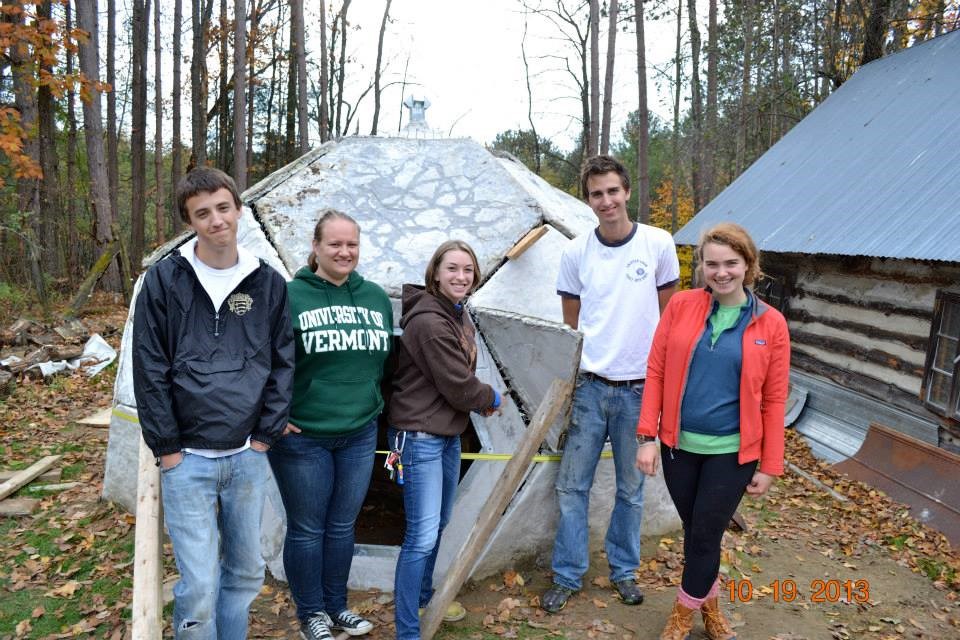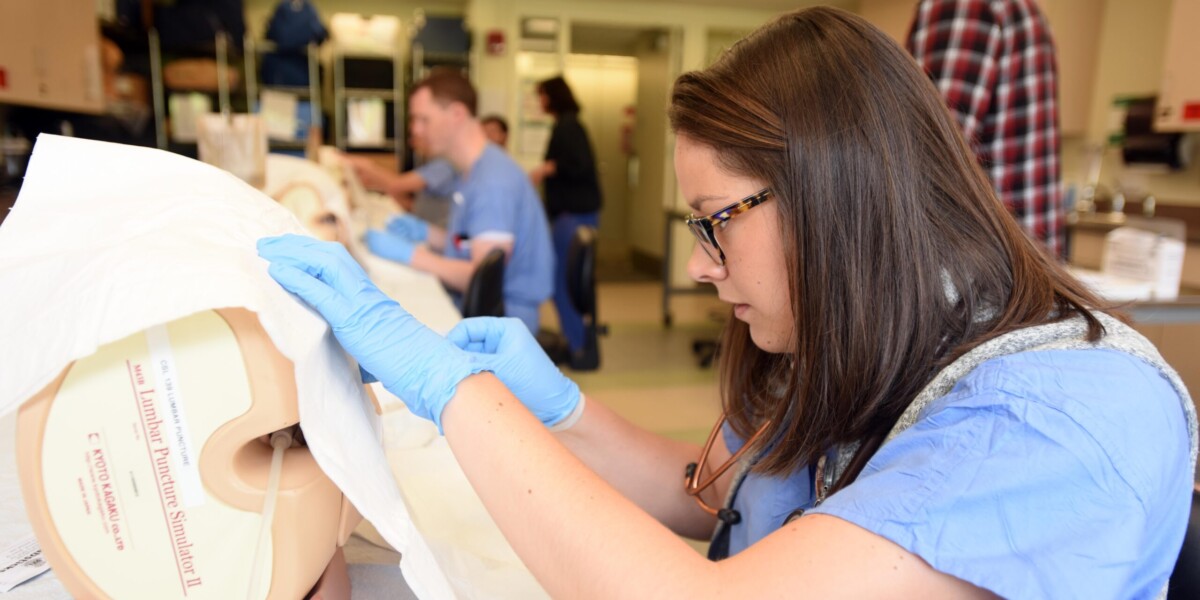In January, veterans with GI Bill tuition benefits who meet specific requirements will be eligible for the in-state tuition rate at The University of Vermont and any of the Vermont State Colleges, regardless of their state of residency.
Passed by Congress last year, the new benefit will go into effect January 1 (the deadline was extended from July 1). The Veterans Access, Choice and Accountability Act of 2014 (“Choice Act”) also applies to transferred GI Bill benefits to spouses of service members, including those who died in the line of duty after 9/11.
The original GI Bill, which was passed 70 years ago, enriched the United States by producing 450,000 engineers, 240,000 accountants, 238,000 teachers, 91,000 scientists, 67,000 doctors, and 22,000 dentists, according to the Institute for Veterans and Military Families. The return on investment was remarkable: for every $1 invested in the GI Bill, $7 went back into the American economy.
Today, the post-9/11 GI Bill is the largest investment in veterans’ education since World War II.
Transitioning From the Military to College

In 2004, David Carlson, a Marine veteran, UVM alumnus, and coordinator of UVM Student Veteran Services, went from earning his diploma at Burlington High School to enlisting in the US Marine Corps, then from boot camp to Camp Fallujah, Iraq, in a matter of several months. A second deployment in Ramadi, Iraq, and a third, as a reserve on a ship in the Mediterranean, would follow. When Carlson completed his military duty, he returned home and decided to continue his education at UVM.
These days, Carlson’s role is to help fellow military vets make a smooth transition to the University and negotiate the new environment once they’re enrolled.
We talked to Carlson about the new GI tuition benefit and the reality that veterans face when they return from service.
Could you talk about some of the challenges veterans face when they come home?
I think the biggest challenge is the culture shock. We’re talking about a specific group of military service members who are transitioning from a martial culture to a campus or organization with a completely different set of norms, language, and ways of communicating.
When I left the Marines in 2008, it took me about two years to start feeling really comfortable speaking openly about my experience. The culture change was tough at first, but the ability to adapt to a new scene is also one of the greatest benefits I attribute to military service.
While I learned a lot at UVM, the most valuable takeaway for me was understanding how to translate the skills and attitude I developed in the Marines so that civilian peers, professors, or colleagues could appreciate my contribution to a project in a meaningful way. When I say “translate,” that’s an intentional word. Veterans are often literally translating between the language used in the military and that of civilian employment or higher education. When that transition is compounded by barriers to accessing benefits — perceived or real — lack of guidance, or misinformation, it can cause trouble.
Tell us about the veteran population we’re trying to attract to UVM.
Depending on an individual’s length of service, there are significant financial incentives for a military veteran to go to college and seek a four-year degree or other credential. There is also a definite cultural pull to find a job that supports their family as soon as possible. When we think about non-traditional students, veterans are exactly that: they’re typically a little older than a traditional undergraduate, many are married or have children, a mortgage, a car payment, daycare, and aging family to consider when making decisions like enrolling in higher education. If their benefits are going to be late and that means missing a mortgage payment or maxing out a credit card for gas and groceries, that’s a problem.
What types of programs and areas of study are veterans drawn to at UVM?
Military veterans are a diverse population, and their distribution in majors or academic interest reflects that. Lately, I’ve heard a lot of veterans express interest in business and health-related fields, as well as engineering, science, and public service. Nationally, a majority of student veterans are enrolled at public institutions, where they can maximize their GI Bill benefits. UVM is consistently working to make it easier for US Department of Veterans Affairs (VA) beneficiaries to use their benefits here.
Could you share a success story of a veteran who enrolled at UVM?
One of our recently graduated student veterans came from a small town. She grew up thinking and being told that she wasn’t going to be able to leave that town or make any significant progress in her life the way she wanted to. The military changed that. She enlisted and traveled around the US, was trained in an engineering-related field, and deployed in support of Operation Iraqi Freedom. When she came home, she used the post-9/11 GI Bill to attend UVM and worked hard to graduate with a great GPA and a BS in Electrical Engineering. Now she has a great, well-paying job working for a large firm in New York. I heard from her recently, and her happiness and success were palpable in our brief phone conversation.
It seems that many people think the GI bill means free education for veterans. Is this a common misunderstanding?
That’s definitely a common misunderstanding. It’s why I tell veterans I’m working with that they need to be informed consumers of benefits. Being an informed consumer means understanding what benefit you’re eligible for, why you’re eligible for it, what it pays, when it pays, and what you need to do to apply for it and monitor it so that you’re getting exactly what you’ve earned. There can be a lot of moving parts when an adult student is considering pursuing a four-year degree after the military; there are even more when they’re hoping to use VA education benefits.
There are a lot of different VA education benefits commonly referred to as the “GI Bill” and many of them pay in very different ways. For instance, a National Guard solider who signs up for a six-year contract could be eligible for the Montgomery GI Bill Selected Reserve, which pays a maximum base benefit up to $368 per month to help students with basic expenses while they are enrolled in full-time classes. That’s significantly less than veterans eligible for the post-9/11 GI Bill, who, after their enlistment, are eligible for 100 percent of the benefit – which consists of up to 100 percent of in-state tuition and fees, a monthly housing allowance up to $1,915 per month, and up to $1,000 per year to help with books and supplies. That’s an example of two completely different benefits, and it’s important for veterans or service members to understand what they’re eligible for through the VA.
Could you explain how the new GI tuition benefits differ from what was already in place?
The post-9/11 GI Bill is described as “the largest investment in veterans’ education since World War II.” The VA website lists the individual requirements of the Choice Act. It is different from previous VA education benefits in that it pays tuition and fees directly to the school a student is attending, as well as a housing stipend directly to the student. Together, that makes it possible for veterans or their dependents to earn a four-year degree at a public college or university and some private schools. Veterans are humbled by this benefit. It’s amazing.




